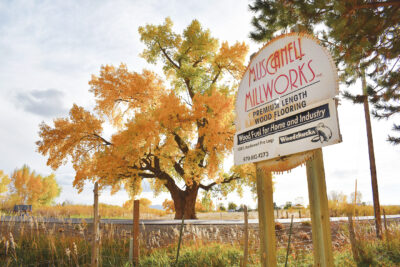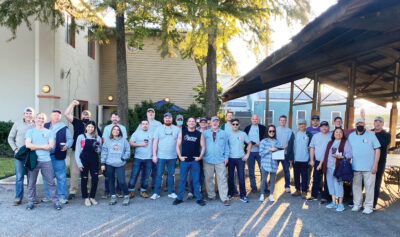We tend to offer advice to others, including employees, even when it is not wanted. Do you like unsolicited advice? Me neither, but we must train employees on how to be more effective, efficient, and industrious. So, what is the best way? I think it’s like guiding a moose hunter.
First, let me say something about hunters. We all know they think they are the best shooter, have the best gear, and can hunt better than anyone else, just because they shot a few deer or something. Most employees are like that too. The best way to guide an employee, is the same way to guide a moose hunter. You can tell them the things to do but, if they don’t care, they will never do the things you tell them.
When I guide moose hunters, I always start by telling them why I am there. Seriously, I tell them this is my family business and I love to get away and have a chance to relax. I tell them about my family and my job at NHLA and how important it is for me to leave them to be a guide. This is true for sawmills and moose hunters; you must tell them what your business means to you and what you are sacrificing to build your business and why they should care. By doing this, you will help them buy in and establish credibility with them.
I then try to relate with them and build on common ground. I ask them if they have hunted moose before or other big game. We share stories and relate to each other’s experiences. Here I do a lot of listening. You would be wise to do the same for your staff. Ask them about themselves and their experiences in their life. Don’t put down any of their experience’s no matter how crazy they are, just nod and ask them follow up questions about how it made them feel or where they went from there.
As I start to share moose hunting advice and explaining how it is different than other types of hunting, I share with them the experiences I have had with other hunters over the years. So and so did this, what’s his name did that, and it was crazy, or it was great. Experiences teach the hunter my preferred way of hunting without being bossy. You have had plenty of good and bad experiences with employees, tell them those experiences and laugh about it. And I always say, you can do what you want, it is your hunt, but my job is to give you the best possible chance of seeing a moose each time we go out. Your job is to help employees succeed by giving them the tools to do so but they must make their own decisions when grading or milling or selling Hardwood lumber.
Most often I tell them about times when a hunter was not prepared. So, they need to be prepared for anything. They need to look around and become familiar with their surroundings. I warn them they have 8 seconds to shoot when I call a bull in hot, just like riding a bull at the rodeo. They can relate to that. They get the general idea; nothing goes as planned for a bull rider.
When you teach employees, you need to share experiences, good and bad, again and again and again. Your experiences, your boss’s, your father’s, your past employee’s. It does not matter whose, it only matters what principle, habit, or behavior, you are teaching with the story.
After all that, I tell them how nothing ever goes as planned when hunting, the moose is smart and never does what you think it will, so you must adapt. I then take them to a lake shore and show them how to call moose. It is an extended “EER—UGH—bellowed into a Birch bark bullhorn.” Calling a moose to come to you on a lake shore or in a meadow is the most effective way to hunt, seeking a moose by walking in the forest is hard, there are too many trees blocking your view and walking is too noisy. Finally, when a moose comes, I am prepared to back them up if they hit the moose.
The same holds true for employees. After sharing with them experiences and expectations you need to get them started or give them new responsibilities. When things don’t go as planned, and they won’t, they need to know who to call and know that you will back them up on good decisions. When employees solve a problem on their own, even if it wasn’t what you would do, you support what they did and tell them what they could do better next time.
Unlike a mountain or a mostly barren wilderness where you spot and stalk, in a forest you sit and wait. I am sure many of you have done that in deer stands. While you wait, you think. This is what I do when moose hunting and its prime time to talk to myself and God. You don’t always have to be chasing after things, you can be calm and sit and ponder on things, look around and enjoy where you are. Your employees need some time to do that too. If they think about what they do and they buy in to what you are doing, they can help you solve problems you didn’t even know you had.
A hunter who has been hunting a few days and hasn’t seen a moose quickly becomes discouraged. They start to complain. Don’t complain with them, compliment something else instead. A depressed hunter is often an unprepared hunter. The same is true for employees. Keep asking questions and let them talk it out, you will find they know more than you thought and are still hopeful things will get better. I have the moose stories to prove it.
The only way to get better is to be prepared and change with the situation. Asking questions is more helpful for getting people to realize that they need to change then telling someone that they need to change. Don’t just tell people what to do but guide people to do it by sharing experiences and asking questions.
Why knot be an example to your employees.








